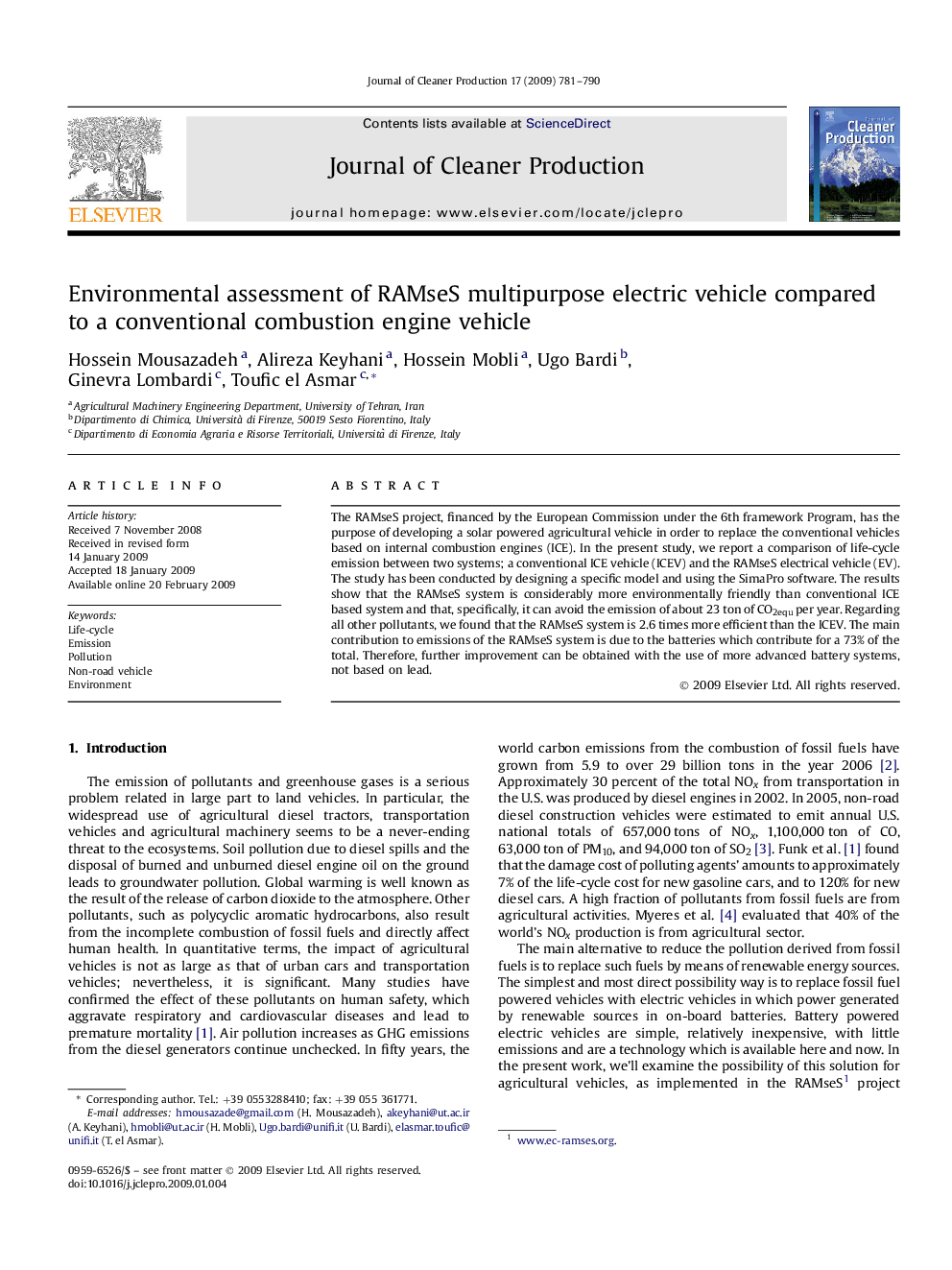| Article ID | Journal | Published Year | Pages | File Type |
|---|---|---|---|---|
| 1746952 | Journal of Cleaner Production | 2009 | 10 Pages |
The RAMseS project, financed by the European Commission under the 6th framework Program, has the purpose of developing a solar powered agricultural vehicle in order to replace the conventional vehicles based on internal combustion engines (ICE). In the present study, we report a comparison of life-cycle emission between two systems; a conventional ICE vehicle (ICEV) and the RAMseS electrical vehicle (EV). The study has been conducted by designing a specific model and using the SimaPro software. The results show that the RAMseS system is considerably more environmentally friendly than conventional ICE based system and that, specifically, it can avoid the emission of about 23 ton of CO2equ per year. Regarding all other pollutants, we found that the RAMseS system is 2.6 times more efficient than the ICEV. The main contribution to emissions of the RAMseS system is due to the batteries which contribute for a 73% of the total. Therefore, further improvement can be obtained with the use of more advanced battery systems, not based on lead.
